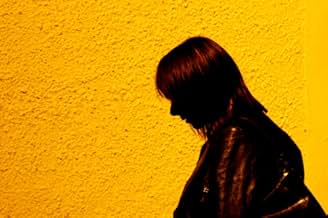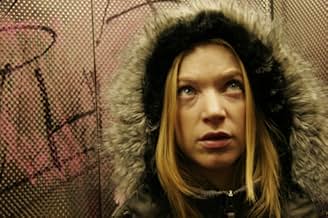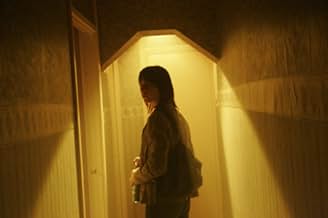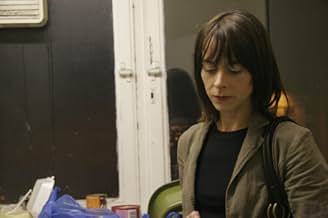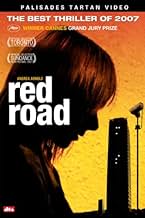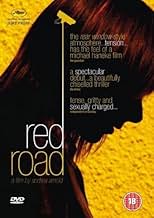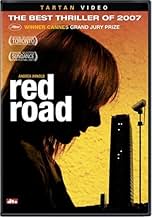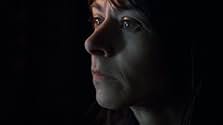Produced in collaboration with Lars von Trier's production house Zentropa and based on characters created by Lone Scherfig and Anders Thomas Jensen, this debut feature by Oscar-winning Andrea Arnold is the first British feature filmed under the rigid Dogma-principles. I guess I'll never become a big fan of Dogma-style film-making, but I must admit, this was a well-structured and ultimately intriguing piece of film-making, if you can make it to the final half hour, when part of the story is resolved and some sorely needed background information is given.
We meet a woman (Kate Dickie) who works as a CCTV operator, obsessively observing the residents in a run-down housing estate in Glasgow. She seems obsessed by her work, compensating for her non-existent social life. Most of the story revolves around a dire housing estate, a huge 25-floor tower, on Red Road, from which the film got its title. On day, when she zooms in on a man having some back-alley sex with a young woman, she recognizes him and starts tracking his every move on camera, but in real life as well, even insinuating herself into his life, going to his apartment and even attending a party he's giving. Obviously, she has some shared experience from the past with this man. At first, it seems an ex-husband/boyfriend, but soon it becomes obvious he doesn't know her, apart from a vague recollection, "haven't I seen you somewhere before?" Who is he and foremost, what on earth could this woman possibly want from him? The film keeps you guessing till the very end. Perhaps a bit too long. For almost 90 minutes you keep wondering why the hell she goes through all this trouble meeting this mysterious fellow. Till then we're fishing in the dark.
The film is greatly bolstered by two extremely convincing performances. Kate Dickie commits herself to this role with such vigour, her every move comes off completely believable, despite her motivations are hard to understand, while Tony Curran's performance ranges from very frightening to even touching at times. It's interesting enough to keep watching, but only just, till the end, when the elements fall in place. The prominence of CCTV surveillance in the film and how far it has penetrated Britons everyday lives (and increasingly in other parts of the world as well), is quite revealing and disturbing as well. Since a large part of the film consists of CCTV-images and is strained by Dogma-rules in the first place, the images are not always pleasing for the eye. But some beautifully shot night scenes around Red Road-estate and the two powerhouse performances by the leads largely make up for some shortcomings in the film's narrative.
Camera Obscura --- 7/10






